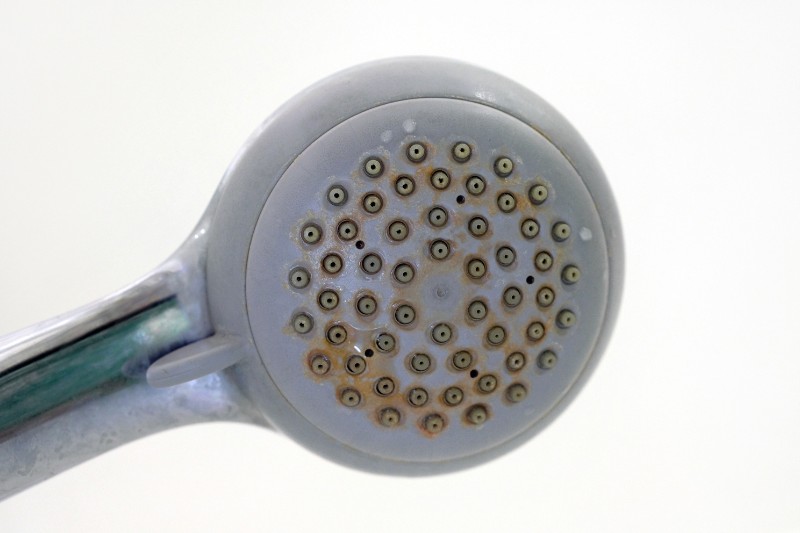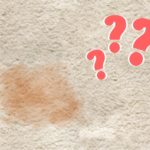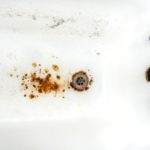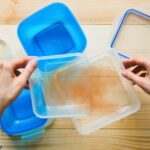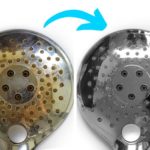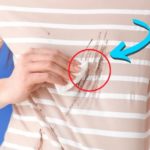Rust stains can appear on plastic for all kinds of reasons. Considering they’re not the most attractive marks to look at, it can help to know how to remove rust stains from plastic.
And that’s exactly what we’ll cover in this article. Below, you’ll find out four options for how to remove rust stains from plastic.
What Type of Plastic Are You Cleaning?
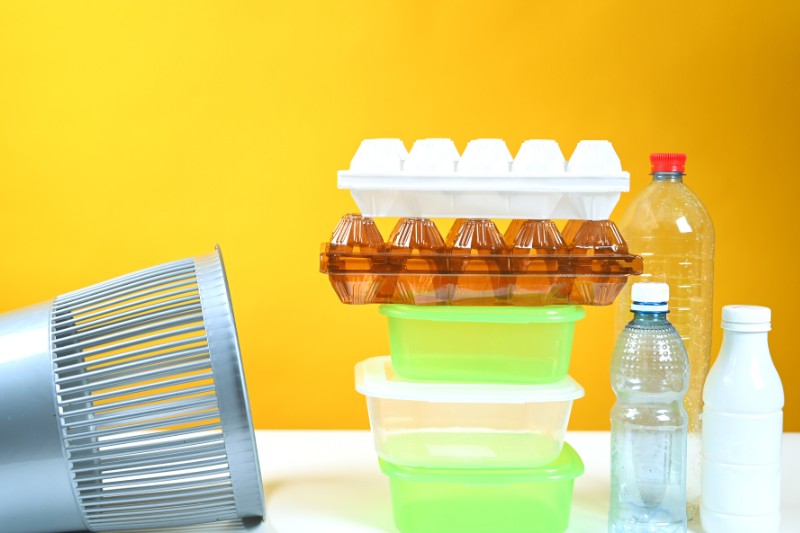
A helpful starting point is to know what kind of plastic you’re trying to clean. While it’s not completely necessary, it can affect the cleaning products and methods you’re able to use.
There are two main types you’re likely to be working with: acrylic and PVC/UPVC. For example, a plastic bathtub will likely be acrylic, whereas doors and window frames will be uPVC.
But why does this matter? Well, some cleaning products will be too harsh or abrasive for certain types of plastic. For example, you won’t want to use UPVC cleaner on acrylic.
If you’re not sure what type of plastic you’re working with, don’t worry. The safest bet will be to use the most gentle natural products and just repeat the cleaning process if necessary.
How to Remove Rust Stains from Plastic
Option 1: Rust remover
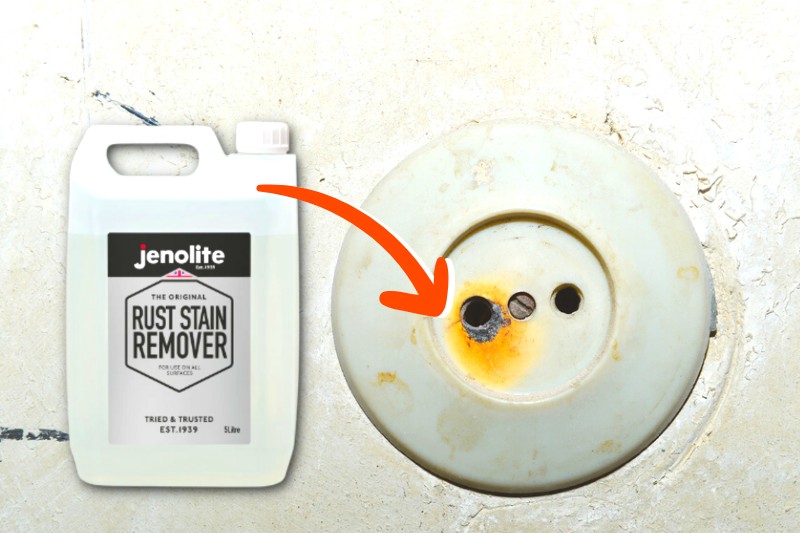
The most obvious option is to use rust remover, such as Jenolite Rust Stain Remover.
Make sure you choose a product that’s non-caustic and safe for use on plastic. Hard-hitting products designed for stone and masonry can melt through plastic with little difficulty.
If you know you’re working with UPVC, consider using a dedicated PVC cleaner, such as HG UPVC Cleaner. They can remove all kinds of stains from UPVC and are formulated for this kind of job.
The steps will differ for each product, but it’ll usually consist of spraying on the product and wiping it off with clean water. As such, it’s a fairly low-effort job that should work fine.
Option 2: Lemon juice or white vinegar
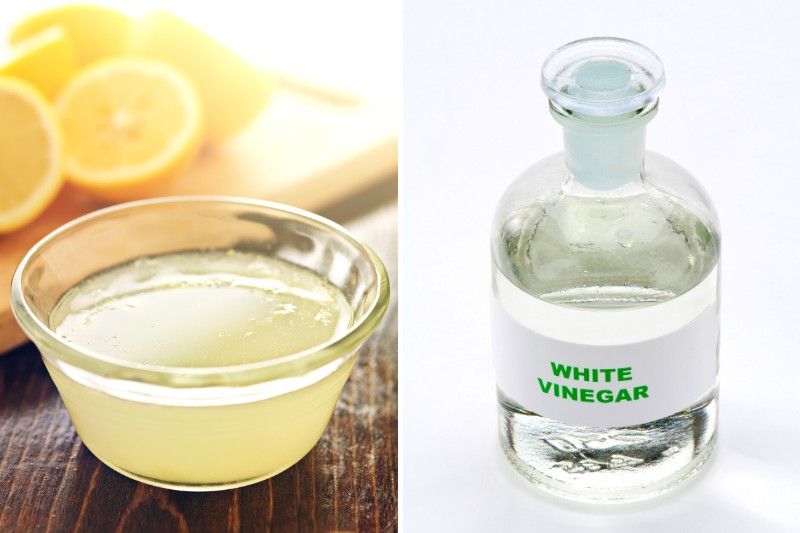
A natural alternative to rust remover is lemon juice or white vinegar. Both products are mild acids that can eat through rust stains if given long enough to soak.
If possible, you’ll want to let the acid soak on the rust stain for up to 30 minutes. You could do this by submerging the item or draping a vinegar-soaked cloth over the stain.
After it’s soaked for a while, scrub the stain with a non-scratch scouring sponge. You might need to repeat it a few times before the stain fully lifts.
However, a weak acid likely won’t be strong enough for large rust stains.
Option 3: Washing-up liquid
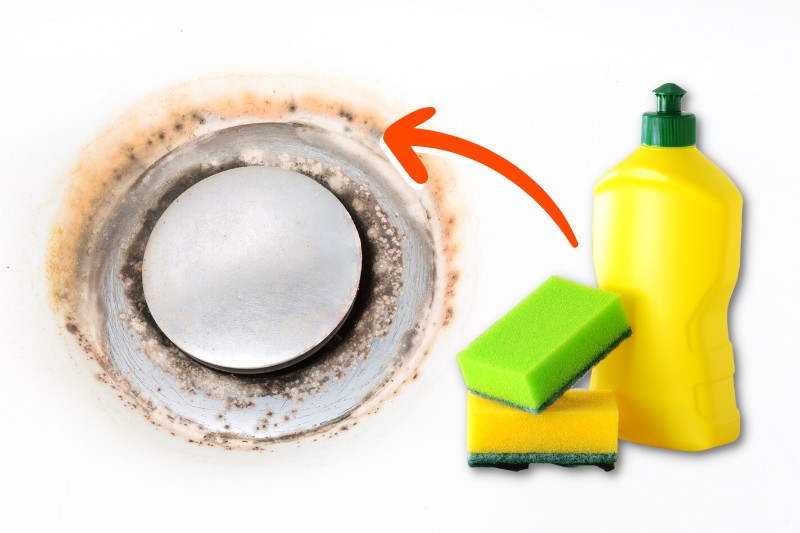
If you’re dealing with very minor rust stains, a bit of washing-up liquid can do the job. This is suitable for plastic items that come into contact with food, such as a rusty plug hole on a plastic sink.
Squirt a small amount of neat washing-up liquid onto the rust stain and scrub it with a scouring sponge. Rinse the washing-up liquid off, give it another scrub, and repeat until the stain has lifted.
Option 4: Potato
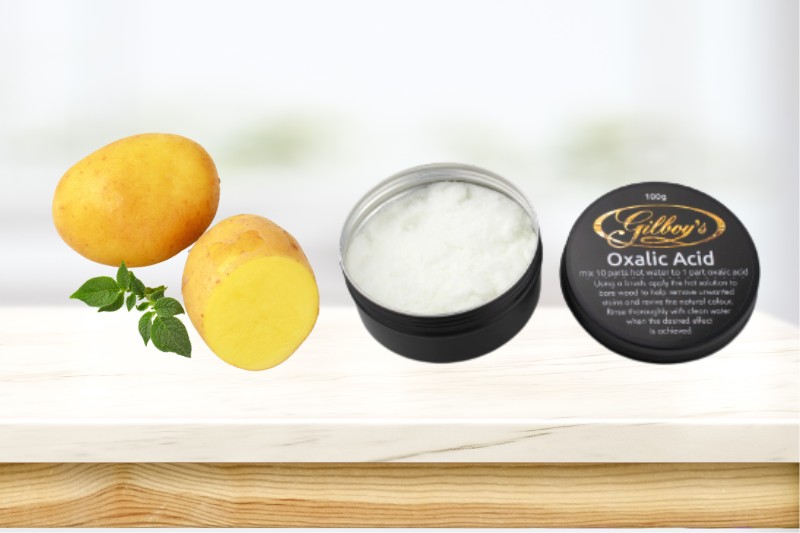
Another option for minor rust stains on food-related items is to use a potato. It might sound odd, but potatoes contain oxalic acid, which can eat into rust stains if given enough time.
To use this method, cut a potato in half and rub the exposed side on the rust stain. Leave it for 10-20 minutes and then wipe away. If you need to repeat it, cut off the bit of potato you used previously to expose a fresh piece.
You can also buy oxalic acid crystals, such as Gilboys Oxalic Acid. It’s mainly sold to remove paint from natural products, but it doesn’t react with plastic (which is typically used to hold the solution in buckets).
Follow the instructions on your product and soak the plastic item for the specified time.
Final Thoughts
Removing rust from plastic takes a bit more care than more resilient materials such as stone. Products that are too caustic or abrasive can damage plastic, which obviously isn’t helpful.
If you need a fast-acting, easy-to-use solution, go with rust remover. Of course, if you want something more natural, be prepared to use plenty of elbow grease!

Jacob is a writer based in Wales, where he lives with his partner and two dogs. All his work is fuelled by extensive research and buckets of coffee.
